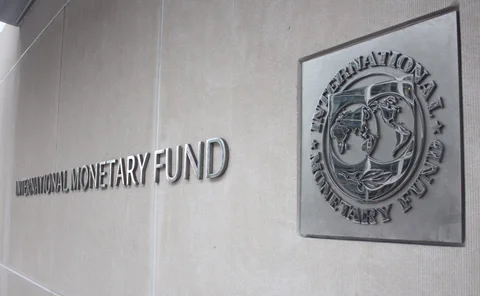Macro-prudential policy
Dutch banks’ cross-border lending data 'supports case for reciprocation'
Large Dutch banks boost lending in response to tighter regulations, paper says; behaviour is likely to undermine effectiveness of macro-prudential policy
Reserve requirements complement monetary policy in small open economies – paper
Paper examines the use of indirect and direct monetary policy instruments in three Caribbean economies; increases in the reserve ratio are successful in reducing private sector credit
Post-crisis banking regulations increase large firms’ funding advantage – paper
Banque de France working paper presents a large-scale DGSE model with large and small firms to analyse the impact of new banking regulations
Bank of Slovenia introduces macro-prudential measures for housing market
Slovenia’s central bank has recommended lenders impose loan-to-value and debt service-to-income ratios on all new housing borrowers
Largest banks meet Basel III capital standards – BIS and EBA
Banks have improved capital and liquidity ratios, reports note, but methodology may differ from that used by industry
Flug urges Israeli parliament to make haste in setting up financial stability committee
Bank of Israel governor says changes to banking competition increase the need for the new supervisory body, warning risks may be on the rise
RBNZ tweaks LVR rules following consultation
New rules to apply to investors nationwide, placing 5% “speed limit” for lending above LVRs of 60%; proposed new measures to come into force in October due to banks’ deadline concerns
Working paper examines interactions between credit defaults and monetary policy
Countercyclical capital buffers can lessen macroeconomic fluctuations but increase the length of slumps, author argues; bank recapitalisation “overcomes this trade-off”
Emerging evidence can guide design of macro-prudential policies, say BIS, IMF and FSB
International institutions present review of evidence on macro-prudential policies; no consensus but some patterns are emerging
Definitions matter when using DTI ratios – Riksbank paper
How regulators define debt and income can affect the outcome of financial stability analysis and the use of macro-prudential tools, authors say
RBI should improve link between analysis and macro-prudential policy – FSB review
The Reserve Bank of India should consider regular financial stability meetings to set policy, and it needs to support its decisions with deeper analysis, a peer review finds
ESRB recommends EU states reciprocate Estonian capital buffer
European Systemic Risk Board’s recommendation is only second time it has suggested regulators should reciprocally adopt a new macro-prudential measure
UK MPs urge separation of Financial Conduct Authority functions
Parliamentary committee suggests enforcement is separated from the FCA in a report on HBOS failure; the authority says this would inhibit its ability to act as a regulator
Irish central bankers take first look at effectiveness of macroprudential housing policies
Ireland’s central bank publishes examination of its first full year of operating macroprudential measures affecting the housing market; compares data on borrowers subject and free from limits
Mortgage interest tax deduction can increase market volatility – DNB paper
Making interest payments on housing loans tax-deductible can raise the debt levels of households and their chances of default, and increase housing market volatility in response to outside shocks
ECB paper explores capital-based macroprudential measures
Dampened credit and asset price growth can have a “sizable” impact on predicted crisis probabilities, authors note; they present an early warning global autoregressive model
ECB paper presents ‘news’ and ‘noise’ model of US housing market
A new model of the US property market differentiates between “news and noise shocks”; latter can have significant effects and policy-makers should consider pro-cyclical property taxes, author says
RBNZ weighs tighter macroprudential policy and wider toolkit
Reserve Bank of New Zealand considers use of debt-to-income ratios to calm housing market, consultation with banks to occur before implementation
Report calls for co-operation in appraising macroprudential tools
Research led by Anne Le Lorier for Basel Committee on the Global Financial System says governance arrangements should promote “wider co-operation”
Bank of England cuts CCB to 0% to support credit supply
In wake of Brexit uncertainty, concerns over supply of credit ‘taken off the table’ says Carney; new buffer rate to give confidence to UK economy that banks can lend in ‘challenging times’
IMF paper examines factors affecting US wage growth
US labour market changing “more fundamentally” than before, author finds; wage growth expected to accelerate in near term
Sweden’s FI gauges impact of debt-to-income limit
Financial regulator tries to attach values to the growth and stability impact of DTI limits, one potential tool for tackling rising household indebtedness
Prepare to fail
Jesper Berg offers advice to those looking to build financial stability frameworks, and says failure has to be part of the package
Colombia to treat new credit line as ‘insurance’ against extreme shocks
IMF expands agreement with Colombia to $11.5 billion; deputy technical governor highlights role it has to play as economy goes through period of adjustment





















